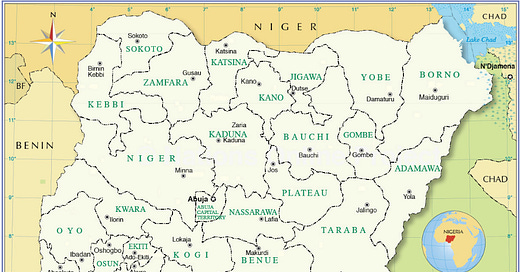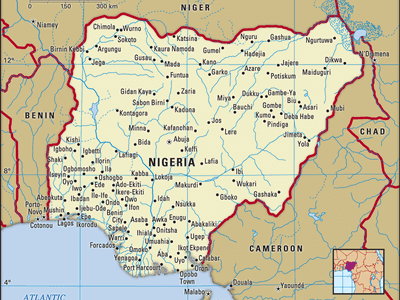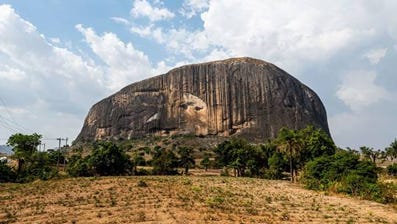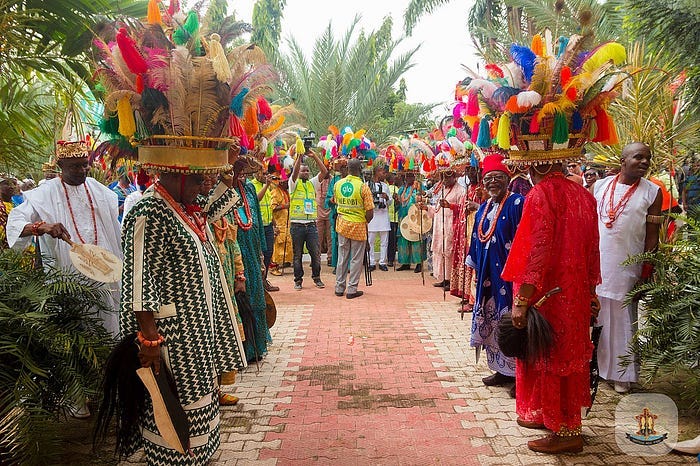The Elephant of Africa
Quick overview on Life, Commerce, Nationhood and Culture within the Bold, Rich and Dying Elephant of Africa.
I was given a rare opportunity to give a speech at an art Gala Night recently on what life is like in Nigeria and the rest of Africa. Some of my presentation may look and sound familiar. Others would be completely new.
The goal is to initiate a new understanding of the creative mind of a society loved, feared and disdained on many fronts — by friends, foes, willing and unwilling native segmentation. It is meant to create a little diversion from some of the commonplace ideas and abundant literature materials that circulate from government agencies, social media platforms, past and present experiences.
Overview
Nigeria is a country located on the Atlantic west coasts of Africa. With a landmass of about 356,669 sq miles (923,769 sq. km), a population of more than 230 million and a huge population of foreign nationals across the human occupation spectrum, the country is the most populous country in Africa, and the world’s sixth-most populous country. It has borders with Niger in the north, Chad in the northeast, Cameroon in the east, Benin in the west, and Atlantic Ocean in the South.
It has a unique history, stunning landscapes, rich and diverse cultural heritage. The country’s capital is Abuja, located in the Federal Capital Territory, with the former capital, Lagos, as the country’s leading commercial and industrial city. Modern Nigeria dates from 1914, when the British Protectorates of Northern and Southern Nigeria were joined. The country became independent on October 1, 1960, and became a republic in 1963. It is a member of the Commonwealth of England.
Nigeria has a diverse geography, with climates ranging from dry, barren to humid equatorial and rainy seasons. According to popular records, hundreds of languages are spoken in the country. The most visible including Yoruba, Igbo, Fula, Hausa, Edo, Ibibio, Tiv, and English. The country is rich in natural resources, notably petroleum and natural gas, iron ore, gold, and several other solid mineral resources.
National Emblems & Landmarks:
Nigerian National Pledge:
I pledge to Nigeria my country.
To be faithful, loyal and honest.
To serve Nigeria with all my strength.
To defend her unity and uphold her honor and glory.
So, help me God!
The Nigerian Coat of Arms
The Nigerian National Flag
Zuma Rock
The National Theatre
Nigerian National Pledge:
I pledge to Nigeria my country.
To be faithful, loyal and honest.
To serve Nigeria with all my strength.
To defend her unity and uphold her honor and glory.
So, help me God!
Life in Nigeria
A quick survey of some of the most important things any foreign traveler would want to know about Nigeria as a country before their next travel to this West Africa nation — Public servant, missionary, tourist, business executive or what have you:
1. Ethnic Groupings
Nigeria is incredibly diverse, with over 250 ethnic groupings on record. Major groups include the Hausa-Fulani in the north, the Yoruba in the southwest, and the Igbo in the southeast.
There are also sub-groups such as Tiv, Itsekiris, Fulani, Ijaw, Efik, Ibibio, Annan, etc. each group with its own distinct language, traditions, and customs within the larger of the dominant Hausa, Yoruba or Igbo domains, within their sub-regions.
2. Fathers of the Nigerian Nation
Rt. Hn. Dr. Nnamdi Azikiwe (Dr. Zik) — Journalist, political statesman and revolutionary leader.
Sir Abubaka Tafawa Belewa, KBE
Alhaji Sir Ahmadu Bello — The Sardauna of Sokoto
Chief Obafemi Awolowo — Lawyer
Mallam Aminu Kano GCON
Dr. Michael I. Okpara -Political leader, doctor and the premier of Eastern Nigeria
Bishop Samuel Ajai Crowther — First African to be consecrated as a bishop in the Anglican Church, and the first African to translate the Bible into a modern language.
Sir Herbert Macaulay — Nigerian nationalist, political activist, engineer.
Alvan Ekoku — Foremost educationist, scientific, bioethics and medicine, political Statesman — English and French.
Chief Dennis Osadebey — Lawyer, poet, journalist.
Chief Anthony Enahoro CFR — Foremost anti-colonial, pro-democracy activist
3. Languages
Nigeria is an Anglo-phone nation. English is the official language, used in government, business, and education. The use of Latin and French in the legal and scientific dicta is commonplace.
Many Nigerians are multilingual, speaking local languages like Hausa, Yoruba, and Igbo in addition to English.
There is also the common pidgin English, with its varied flavors coast to coast. Some of the Commonplace Pidgin echoes you will hear in most Nigerian marketplace, workplace and other public interactions:
I no hear (understand) English, or I no dey hear English.
E no hear English — He’m no dey hear!
You no like am? — You don’t like it/him/her?
You no wan(t) this one? — You don’t want this one?
Na only pidgin I dey hear (speak). I dey hear English OR I no dey hear English.
I no go school. My parents no get money to send me /us to school.
I no go school
You go school at all?
Weytin happen? — What happened?
Weytin shelley? — What’s going on? What’s the ruckus?
4. Cultural Diversities
Nigeria is one unique nation with complex social structures which transcends all national, regional and rural life. There is a multilateral cultural order of conduct and morality at all levels. Social structure & cultural patterns abound in Nigeria with unique cultural and traditional foundations and boundaries.
Culture in Nigeria may mean something different from what a foreign national understand culture to be. In Igboland, culture “Omena ala,” “Omena ala anyi” represents traditional rites, observances, cultural and social conventions that MUST be respected and upheld.
Daily life and social customs in Nigeria are a complex mixture of deeply rooted traditions and an intricate blend with imported ones.
There are cultural emblems and art representations of these cultural beliefs. These are largely and curiously displayed as spirit guides and national treasures to preserve and protect culture.
Respect for elders, women (Mothers), local customs and traditional conventions is important.
Dress code is modest and elegant, especially in more conservative areas. In all local settings, non-compliance with these ethical and traditional codes may attract unnecessary attention and may even have dire consequences.
Greetings are significant. A handshake is common but can be more formal in traditional settings. In some local settings, non-compliance may be viewed as rude, adversarial, etc.
Establishments serving alcoholic beverages are found everywhere except where Islamic laws prohibit them.
Hotels and nightclubs are part of the landscape of the larger cities.
Movie theatres, showing mostly Indian and American films, are popular among the urban middle- and low-income groups.
The family is the central institution — In urban or rural areas, rich or poor settings, religious or non-religious.
Weddings in Nigeria is a big deal. So are funerals.
New births, birthdays and landmark accomplishments are celebrated lavishly.
Because so many Nigerians live outside the country, funerals for non-Muslims are often delayed for months, to allow all the family members to make plans to return home.
5. Leadership & Governance — “You cannot miss my discussion on this segment!!!”
Federal, state and local government bodies, elected by political votes and citizenship privileges.
Federal
States
Local — (The LGAs)
Traditional Leaders
Village
Kindred
Family Stead
** Be sure to read the next episode!!!










